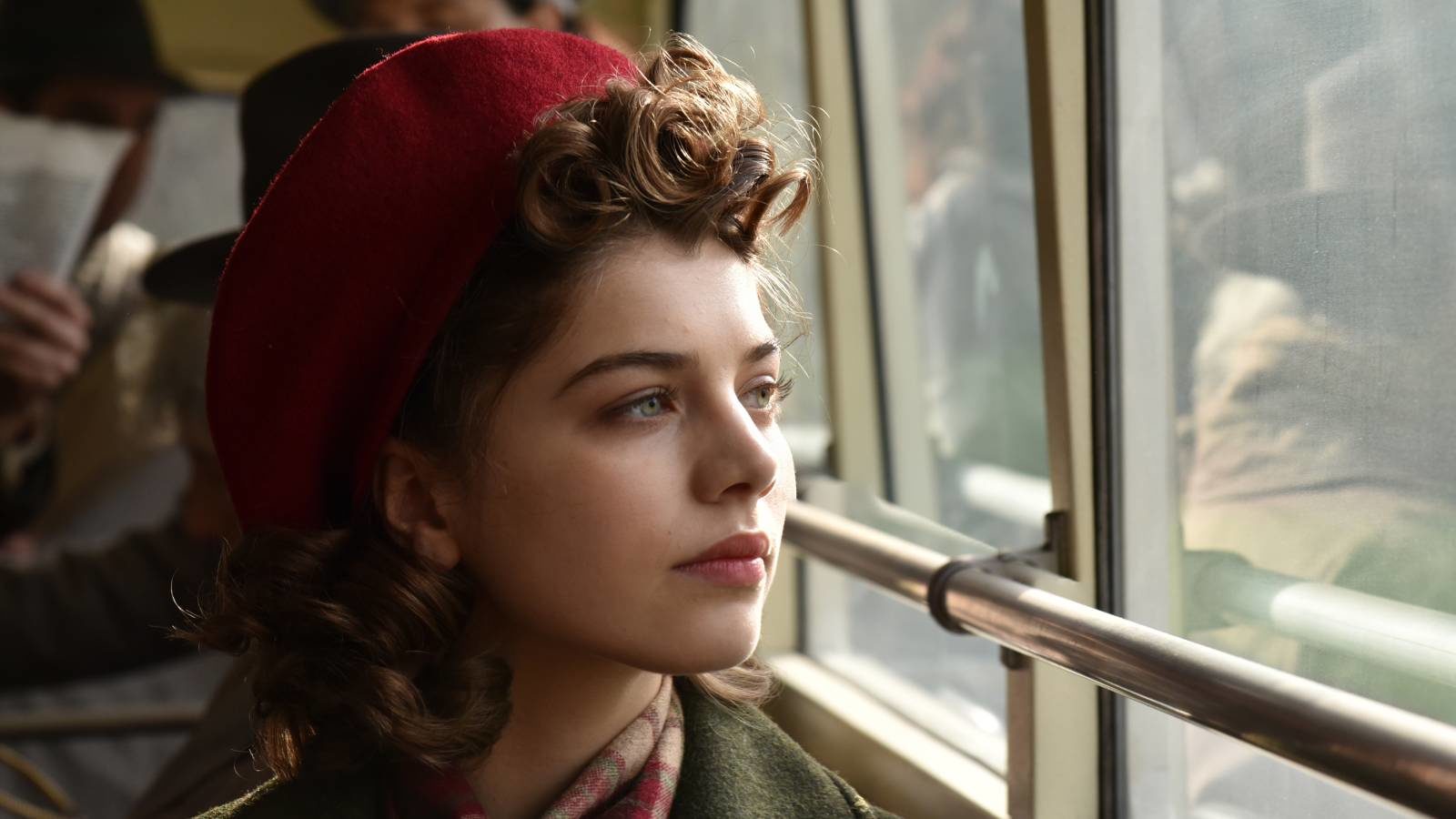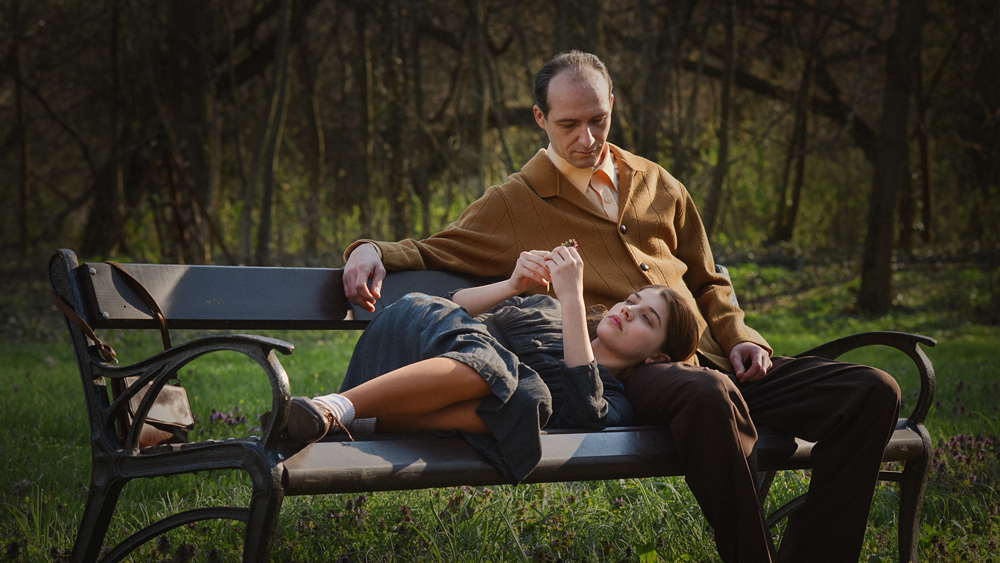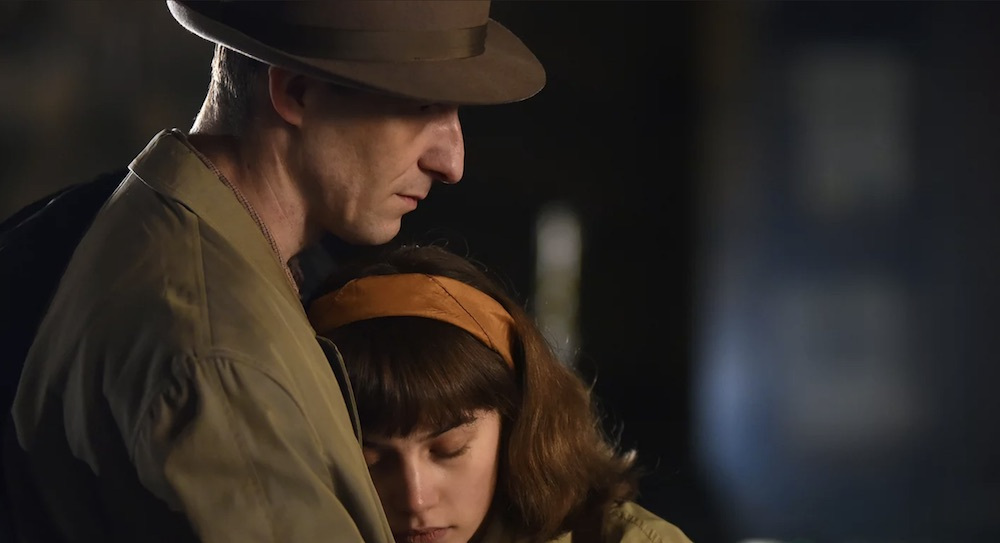
There are many films that have been made about the Holocaust, which to some may feel repetitive but ultimately represents a positive testament to the millions of people who lost their lives and whose fates, while assumed, may still not be entirely known. Invented characters can be useful to convey the experiences of the nameless within an enormous population that did not live to see its own story told. Hungary last won the Oscar for Best Foreign Film for the Holocaust movie Son of Saul (2015), and now it could be in the running again for a smaller-scale Holocaust film Those Who Remained, which unexpectedly made the shortlist of ten films that are vying for the five nominations on Monday.
In this quiet, intimate drama, Klára (Abigél Szõke) clings to the hope that her parents may still be alive as she tries to conduct a normal life with her remaining local relative, Olgi (Mari Nagy), in the aftermath of the Holocaust...

When she meets Aladár (Károly Hajduk), a gynecologist who is the lone survivor in his family, she immediately sees a father figure. The precocious young girl suggests to the mild-mannered, kindly doctor that she come live with him part-time, trying hard to secure a relationship that feels normal as rising Communist influences in the country stir up new fears of persecution.
This is a film that, as its title suggests, looks at those survivors left behind who lost many loved ones and must find some may to pick up the pieces. This film stays firmly focused on its present, following its two characters as they become closer, occasionally allowing them to picture those they have lost, but only in fleeting daydreams which fade away almost instantly. By containing its exploration of these characters to the reality they must continue to experience, this film succeeds in transplanting audiences to their mindsets and keeping them planted there.
The energy emitted by Szõke drives this film more than anything else, and Aladár assesses Klára’s personality perfectly when questioned about her age, replying that, based on her behavior moment to moment, she could be anywhere between five and seventy. Her performance, coupled with Hajduk’s subtle turn, makes their relationship feel three-dimensional, even as boundaries become muddied and the situation to an outside observer might be suspect. There is good reason for paranoia, since the faded threat of ethnic cleansing has been replaced by the looming rise of yet another authoritarian regime, and any perception of impropriety can lead to imprisonment or worse. Klára and Aladár have each other, and in their fractured world, that is enough for the moment. This film effectively traverses melancholy and hope, creating an affirming if expected result. It may be too small in scale and scope to win over Oscar voters, but it has an endearing message that should prove universal.

Coverage of the International Finalists
ATLANTICS (Senegal) - Review, Podcast, Mati Diop Interview, Cinematography
BEANPOLE (Russia) - Review, at Cannes
HONEYLAND (North Macedonia) -Review, #15 Doc Hit of Year
LES MISERABLES (France) - Review, at Cannes
PAIN AND GLORY (Spain) -Review, Podcast, #10 Foreign Hit of Year, Cinematography
PARASITE (South Korea) -Podcast, Class Disparity, Bong Joon Ho's filmography, Cho Yeo-Jeong, #1 Foreign Hit of Year, Memorable Houses
TRUTH OR JUSTICE (Estonia) - Review
finalists not yet covered
CORPUS CHRISTI (Poland)
PAINTED BIRD (Czech Republic)